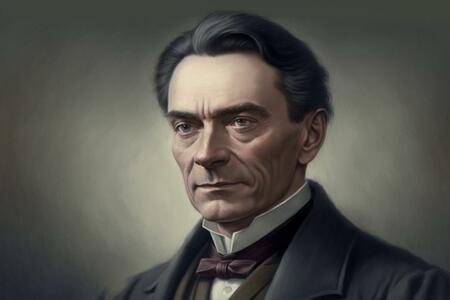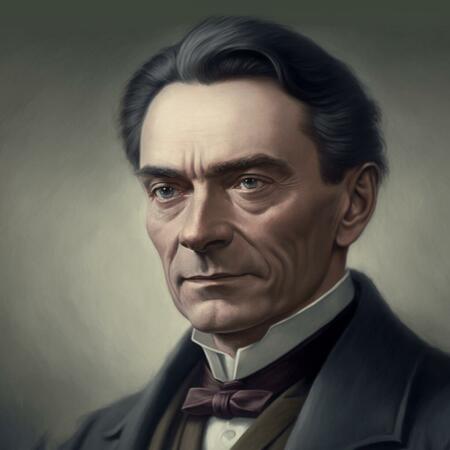
Birthday
Rudolf Steiner
Rudolf Steiner was an Austrian philosopher, educator, and founder of anthroposophy, a spiritual movement that seeks to expand consciousness and focuses on studying man and nature. He was born on 27 February 1861 in Kraljevec, Austria-Hungary (now Croatia), and spent his childhood in various cities of the Empire before taking his Matura in Vienna in 1879. He then studied mathematics, physics, and philosophy at the University of Vienna. After completing his doctorate, Steiner worked as an editor and writer before increasingly turning to anthroposophy. In 1913 he founded the Anthroposophical Society and began giving lectures and seminars in which he presented his ideas and insights. Steiner died on 30 March 1925 in Dornach, Switzerland, where the Goetheanum, the main building of the Anthroposophical Society, is still located today.
Elizabeth Taylor
Dame Elizabeth Taylor was a British-American actress who rose to prominence in the Golden Age of Hollywood, starring in many classics such as "Cleopatra", "Who's Afraid of Virginia Woolf?" and "Giants". She was born on 27 February 1932 in Hampstead, London, England, and died on 23 March 2011 in Los Angeles, California, USA. Taylor was also known as a philanthropist and was involved with various charities.
Other birthdays
- John Steinbeck (27 February 1902 - 20 December 1968, American writer)
- Alfred Hrdlicka (28 February 1928 - 5 December 2009, Austrian sculptor, painter, and graphic artist)
- Constantine the Great (27 February 272 - 22 May 337, Roman emperor)
- Henry Wadsworth Longfellow (27 February 1807 - 24 March 1882, US-American poet)
- Lindsey Morgan (27 February 1990, American actress)
- Joanne Woodward (27 February 1930, US actress)
Saint's day
- Leander
- Cobe
- Gabriella

Birthday: Pisces
Chinese zodiac sign:
猴 Earth Monkey
20,514 days ago (56 years, 2 months)
Daily aspects

When Jupiter is in Leo, we are tactful and diplomatic. Jupiter in Leo is one of the best positions on this planet. We are active, generous, and confident. Our paternal or maternal features appear. But we also love big projects, possibly resulting in excessive self-confidence. We could be sensitive to criticism. We are loyal, fair, vital, and have a strong sense of responsibility. But we could also tend to be excessive.

This transit can cause a dreamy disposition, passive attitude, tendency to self-deception, imbalance, hypersensitivity, weakened instinctual life, and nervous disorders. You could also get lost in wishful thinking. Try not watch horror movies during this time, as it may disturb you, and could lead to vivid nightmares.

This transit can put you in opposition to the law and authorities. You could also be prone to extravagance and waste. Conflicts, disadvantages, or problems could arise in your love relationship. A separation from your wife or mother could occur. Your liver and bile are vulnerable.
The Pisces Moon makes us sensitive, dreamy, and introverted. We have a lively imagination and also dream expressively. Meditation and contemplation are in the foreground on these days. The real world is far away. WE may also feel the need to immerse in our inner self.
Current timezone: Europe/London (UTC +01:00). change timezone
Calendar
Please choose a day:






